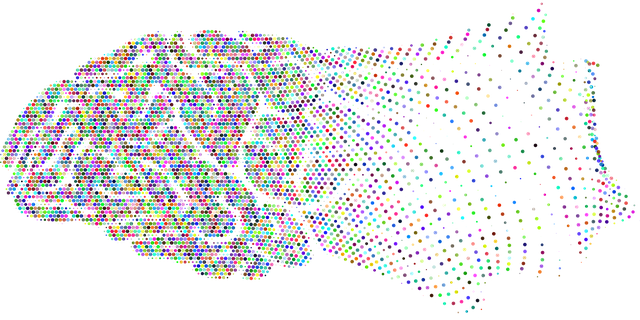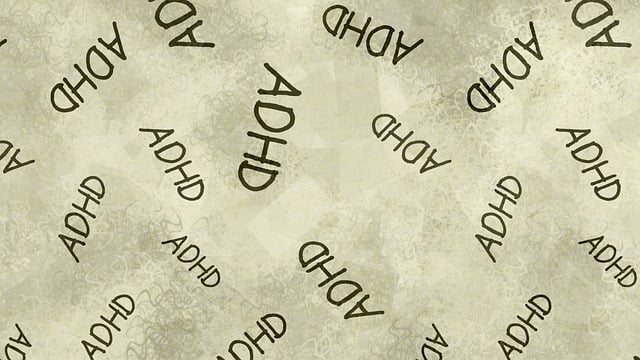Lakewood Dissociative Disorder Therapy (LDDT) offers a specialized, holistic approach to mood stabilization for individuals with dissociative disorders. Integrating mindfulness meditation and cognitive behavioral techniques (CBT), LDDT helps clients manage diverse emotions, improve self-esteem, and develop adaptive coping mechanisms. Risk management planning, lifestyle modifications, and public awareness campaigns further enhance mental well-being. By combining these strategies, individuals can regain control over their mental states, reduce stress responses, and lead more fulfilling lives.
Mood regulation is a complex yet essential aspect of emotional well-being. This article explores various strategies to achieve and maintain balance, addressing the intricate nature of mood stabilization. From understanding the intricacies of emotional shifts to innovative therapies like Lakewood Dissociative Disorder Therapy, we delve into effective solutions.
We discuss cognitive behavioral techniques, highlighting their power in managing moods, and introduce lifestyle modifications that complement these practices for holistic well-being. Discover how these approaches can transform mental health management.
- Understanding Mood Regulation: Unraveling the Complexities of Emotional Balance
- Lakewood Dissociative Disorder Therapy: An Innovative Approach to Mood Stabilization
- Cognitive Behavioral Techniques for Effective Mood Management
- Lifestyle Modifications and Complementary Practices for Optimal Well-being
Understanding Mood Regulation: Unraveling the Complexities of Emotional Balance

Understanding mood regulation is a complex endeavor, especially when delving into emotional balance for individuals with dissociative disorders like Lakewood Dissociative Disorder Therapy (LDDT) clients. This intricate process involves recognizing and managing a wide range of emotions, from joy and contentment to severe distress and disconnection. LDDT therapy techniques are designed to help clients unravel the complexities of their emotional experiences, fostering a deeper sense of self-awareness and resilience.
Self-esteem improvement plays a crucial role in mood regulation, as positive thinking and a strong sense of self can significantly impact emotional stability. Mental health professionals employing risk management planning strategies can empower individuals with LDDT to proactively navigate triggers, mitigate potential crises, and promote overall mental well-being. By integrating these approaches into treatment, professionals contribute to the development of adaptive coping mechanisms, enabling clients to lead more fulfilling lives.
Lakewood Dissociative Disorder Therapy: An Innovative Approach to Mood Stabilization

Lakewood Dissociative Disorder Therapy (LDDT) is an innovative and specialized approach to mood stabilization, particularly tailored for individuals dealing with dissociative disorders. This therapeutic method leverages the power of mindfulness meditation to help patients regain control over their mental states and manage disruptive symptoms. By focusing on present-moment awareness and non-judgmental acceptance, LDDT facilitates a deep connection between the conscious and subconscious minds.
Integrating mindfulness techniques into treatment allows for enhanced resilience building, which is crucial in mitigating stress responses and preventing dissociative episodes. Moreover, mental health professionals conducting LDDT often employ a risk assessment strategy to gauge potential triggers and develop personalized interventions. This comprehensive approach ensures patients receive holistic care, promoting not only symptom reduction but also overall emotional well-being.
Cognitive Behavioral Techniques for Effective Mood Management

Cognitive Behavioral Techniques (CBT) offer a powerful set of tools for individuals seeking effective mood management. This evidence-based approach helps people identify and challenge negative thought patterns, replacing them with more positive and realistic ones. By understanding the connection between thoughts, feelings, and behaviors, CBT enables individuals to gain control over their emotional responses. For those dealing with disorders like dissociative identity disorder (DID), CBT can be particularly transformative. Lakewood Dissociative Disorder Therapy leverages CBT to help clients develop coping mechanisms, enhance resilience building, and navigate the complex dynamics of their conditions.
Incorporating CBT into mood regulation strategies promotes long-term mental health stability. It encourages individuals to become more aware of their triggers and to proactively manage their emotional well-being. Beyond individual therapy, Mental Health Policy Analysis and Advocacy plays a crucial role in ensuring accessible CBT services are available to those who need them. Public Awareness Campaigns Development can also educate the public about the benefits of CBT, fostering a supportive environment for those seeking treatment.
Lifestyle Modifications and Complementary Practices for Optimal Well-being

In addition to traditional therapy like Lakewood Dissociative Disorder Therapy, lifestyle modifications and complementary practices play a crucial role in optimal well-being. This includes adopting a balanced diet rich in nutrients, engaging in regular physical activity, and prioritizing quality sleep. Incorporating stress management techniques such as mindfulness meditation, deep breathing exercises, or yoga can also significantly enhance emotional regulation. These holistic approaches not only support mental health but also foster a sense of control and resilience.
Furthermore, participating in community outreach programs and engaging in mental illness stigma reduction efforts can create a supportive network. Effective communication strategies, both within personal relationships and in seeking professional help, are essential tools for managing mood disorders. By combining these practices with professional therapy, individuals can navigate their emotional challenges more effectively and cultivate a healthier, happier life.
In navigating the intricate landscape of mood regulation, it’s evident that a multifaceted approach reaps the best results. From understanding the complexities of emotional balance to adopting innovative therapies like Lakewood Dissociative Disorder Therapy, individuals now have a plethora of tools at their disposal. Cognitive behavioral techniques, coupled with lifestyle modifications and complementary practices, offer a symphony of strategies for effective mood management. By integrating these diverse methods, folks can foster optimal well-being and harness the power to transform their emotional states.












